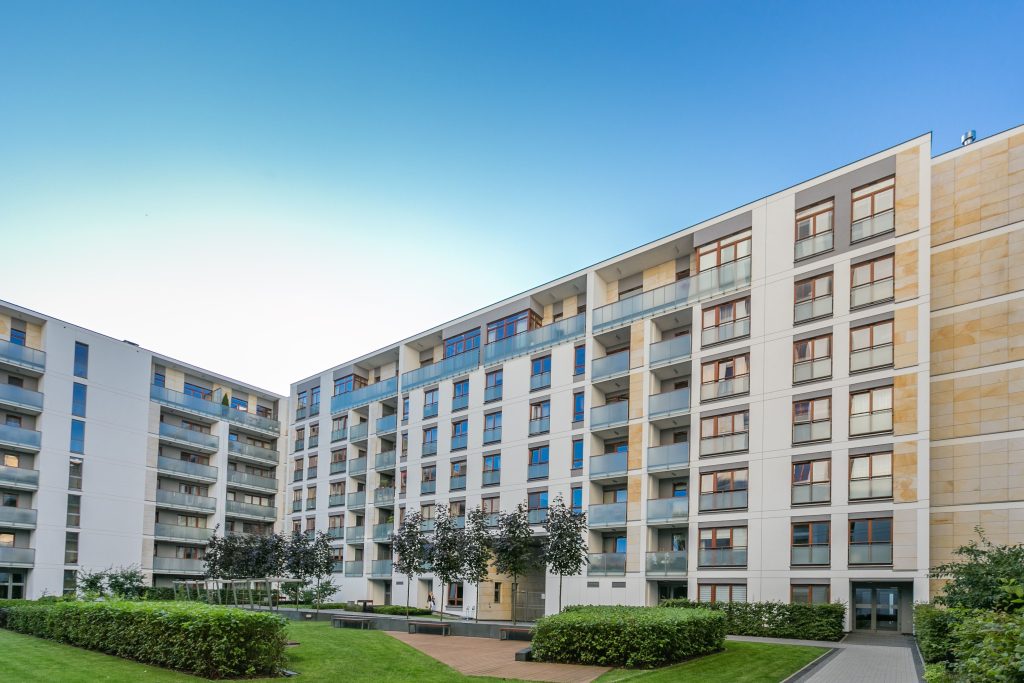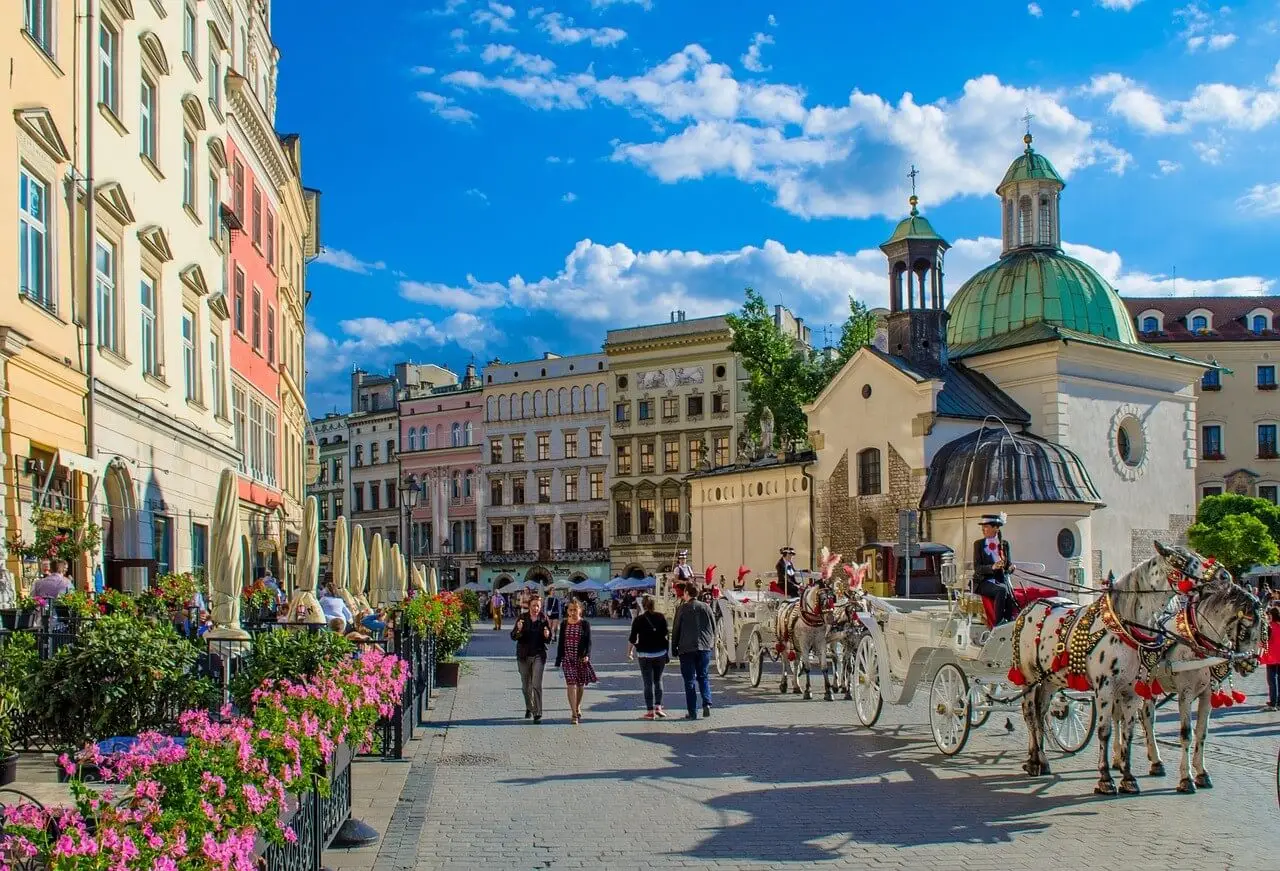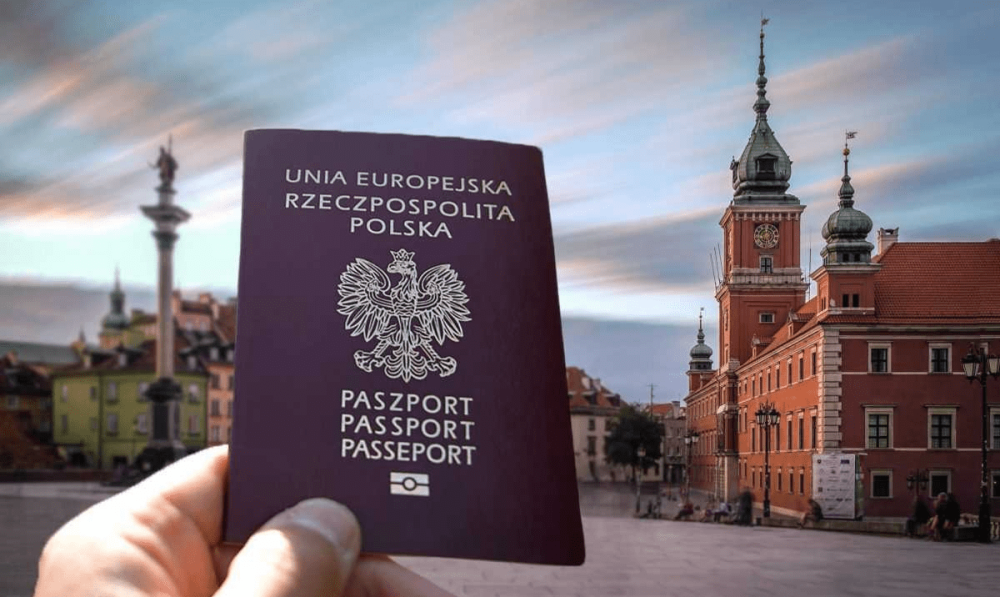Poland has long ago ceased to be only a country for tourism and business. Today, more and more foreigners decide to buy a flat in Poland to start a new life or to invest profitably in the local property market. The country offers not only affordable prices and high quality of life, but also an abundance of cultural attractions and cosy places to live.

Peculiarities of buying property in Poland for Russians
The Polish property market is attracting more and more foreigners, but there are important nuances to consider. Firstly, a purchase permit is required in some cases, especially when it comes to buying a plot of land or a house outside cities. For example, to buy a country house with a plot of land, you need to apply to the Ministry of Interior and Administration, which can take about 3-4 months.
The average cost of flats in Poland varies from 2,000 to 4,000 euros per square metre, depending on the city. Each offers its own advantages:
- Warsaw: a metropolitan city with a developed infrastructure, cultural centres and numerous business districts. Important business centres such as the Warsaw Financial Centre are located here.
- Krakow: the cultural heart of the country, famous for its castles and universities. Life here is close to attractions such as Wawel Castle and Market Square, as well as many museums and theatres.
- Poznan: popular with families due to its quality infrastructure and lower housing prices. It is home to excellent schools and parks such as Citadel Park.
Step-by-step guide: how to buy a flat in Poland
 Buying can seem like a complicated procedure, especially if you are dealing with foreign bureaucracy for the first time. However, by following certain steps and having the right information at hand, you will be able to go through all the steps with ease and confidence. In this section, we will discuss in detail how to choose the right property, what documents to collect, and what to look out for when working with real estate agencies.
Buying can seem like a complicated procedure, especially if you are dealing with foreign bureaucracy for the first time. However, by following certain steps and having the right information at hand, you will be able to go through all the steps with ease and confidence. In this section, we will discuss in detail how to choose the right property, what documents to collect, and what to look out for when working with real estate agencies.
1. determining the budget and choosing the type of accommodation
The first step in buying a flat in Poland is to determine your budget. Prices vary depending on the city and type of housing. For example, you can buy a studio in Poland in Warsaw for 120,000 to 150,000 euros, while in smaller cities such as Lodz or Bydgoszcz, prices start from 70,000 euros.
In addition to the cost of the flat, you need to consider the cost of taxes and commissions:
- Civil Action Tax (PCC) – 2% of the value of the flat.
- Real estate agency commission – 2-3%.
- Notary costs are about 2 per cent.
2. Obtaining authorisation to purchase
Foreigners need a permit to buy property in Poland. This document is issued by the Ministry of Interior and Administration. To obtain it you will need:
- Passport.
- Proof of financial means (income certificate).
- Documents on your stay in Poland (if you are already in the country).
- A statement justifying the reason for the purchase of the property.
The process can take anywhere from 1 to 3 months, so it is important to start early.
3. Finding a flat and working with an agency
Once you have received authorisation, start looking for a flat. At this stage, it is best to use the services of a real estate agency, which will help with the legal verification of the object and the conclusion of the transaction. The agency’s commission is usually 2-3% of the transaction value. This will give you confidence that all the documents are in order and the purchase will go smoothly. It is important to check for a current extract from the land register (Księga Wieczysta) to make sure there are no debts or restrictions on the property.
4. Preliminary agreement
When an object is found, a preliminary contract is concluded – Umowa przedwstępna, where the key terms of the transaction are fixed. The deposit is 10-20% of the value of the object. This contract protects the buyer from possible risks on the part of the seller. The agreement should spell out all the terms and conditions of the purchase, including the value of the object, the terms of transfer and the responsibility of the parties.
5. Finalisation of the transaction
The contract is formalised by a notary. A lawyer records the transaction and after that the property is registered in the land register (Księga Wieczysta). The services of a notary cost about 2% of the value of the property, and a civil action tax (PCC) of 2% is also charged.
New or second-hand housing in Poland: where to buy a flat?
New buildings offer modern living conditions. The cost of such properties in Warsaw and Krakow starts from 3,000 euros per square metre. They are often located in gated residential complexes, which adds a level of security and comfort. Buyers of new buildings can count on quality guarantees from the developer, as well as lower maintenance costs, as modern buildings are built with energy efficiency in mind.
Secondary housing is most often located in central city districts and can offer a unique atmosphere associated with the history of the building. But it is worth considering that such properties may require remodelling. The cost of renovation ranges from 500 to 800 euros per square metre depending on the scope of work. Buying secondary housing can be more cost-effective, but requires additional effort to renovate and adapt to modern standards.
Mortgage for foreigners: how to get financing in Poland
Foreign buyers can easily apply for a mortgage to buy a flat in Poland. A down payment of 20-30% of the value of the flat is required. Interest rates are 3-4% per annum, which makes the conditions quite attractive compared to other EU countries. PKO Bank Polski and Santander Bank Polska actively co-operate with foreigners, offering different mortgage products.
The stages of obtaining a mortgage:
- Pre–approval. To start the process, get pre-approved for a mortgage to see what kind of budget you can expect.
- Filing Documents. Bank statements, proof of income, and NIP (Taxpayer Identification Number) are required. Often banks also require life or property insurance.
- Signing of the mortgage agreement. The bank and the borrower sign the contract, after which the bank transfers funds to the seller. It is also necessary to register the mortgage at the land registry.
Conclusion
 The country offers a wide range of opportunities for those who want to live in the heart of Europe, invest in a stable economy and enjoy a high standard of living. Buying a flat in Poland is a good investment, especially as prices continue to rise and rental demand also remains stable. The ease of obtaining a mortgage, quality infrastructure and security make the country an ideal place for both investment and permanent residence.
The country offers a wide range of opportunities for those who want to live in the heart of Europe, invest in a stable economy and enjoy a high standard of living. Buying a flat in Poland is a good investment, especially as prices continue to rise and rental demand also remains stable. The ease of obtaining a mortgage, quality infrastructure and security make the country an ideal place for both investment and permanent residence.

Invest in your future today and enjoy all the benefits of living in Europe, from high levels of education to a quality medical system and a stable economic climate.
 en
en  de
de  ar
ar  es
es  nl
nl  hi
hi  fr
fr  it
it  pt
pt  el
el 










